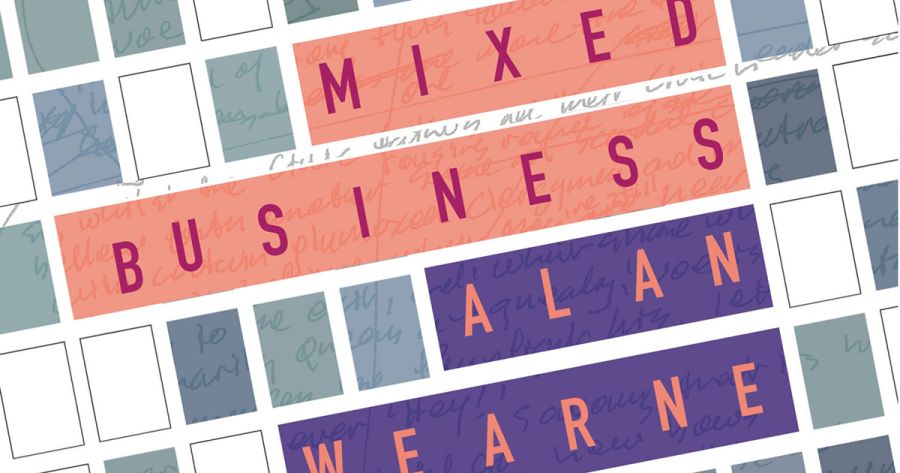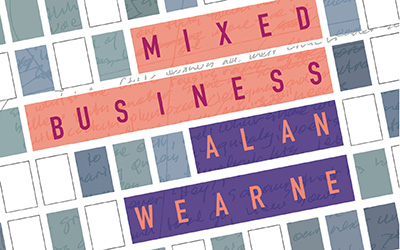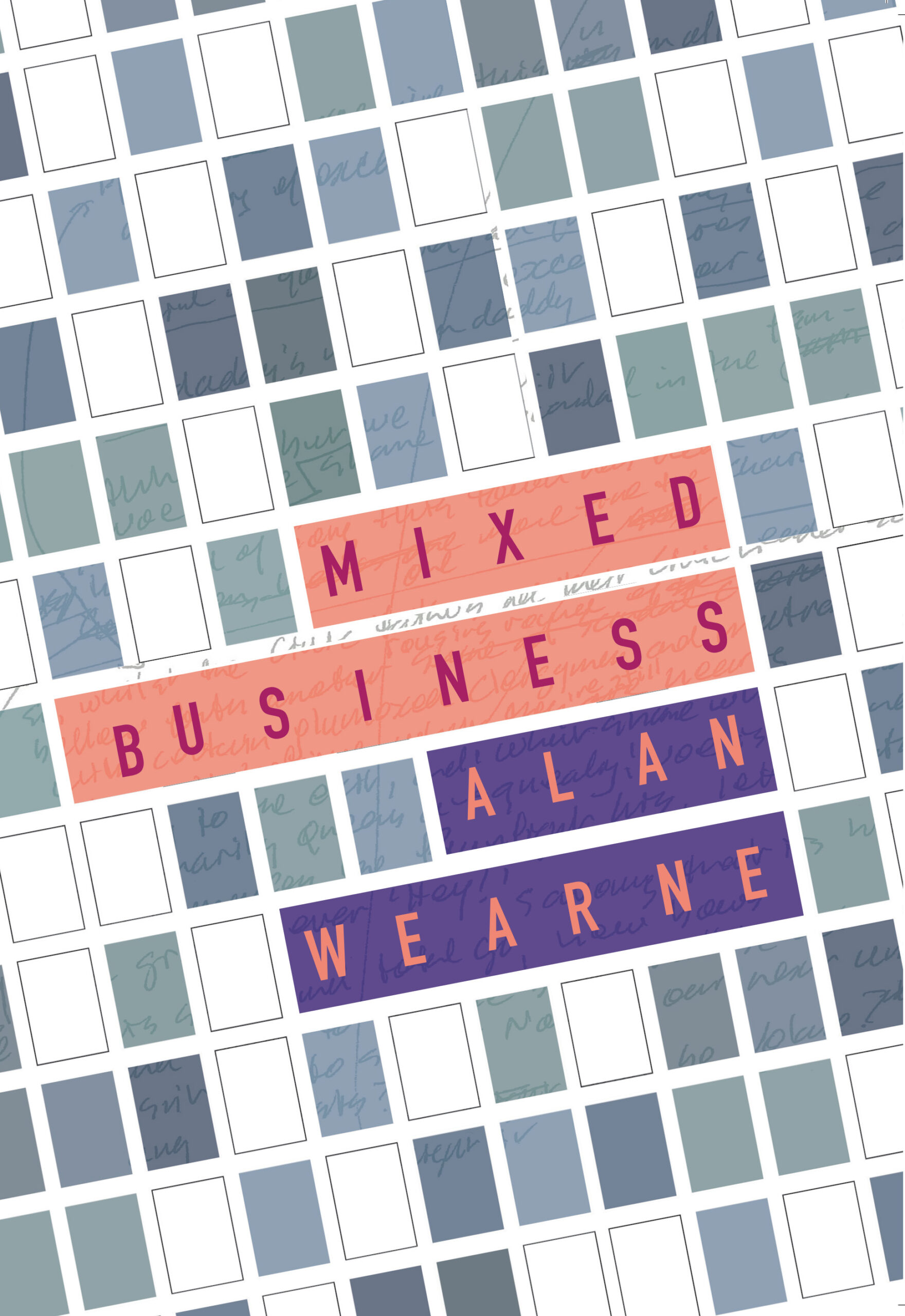
- Free Article: No
- Contents Category: Poetry
- Review Article: Yes
- Article Title: Elevated gossip
- Article Subtitle: An accomplished verse novel
- Online Only: No
- Custom Highlight Text:
For almost fifty years, Alan Wearne has been one of Australia’s pre-eminent users of dramatic monologue. Since The Nightmarkets (1986), he has also become one of our most persistent and accomplished writers of verse novels. It is a form which to many seems paradoxical (how can something be two contradictory things at once?), and yet it is undeniably capable of producing fast-moving and powerful narratives which remain vividly present in the mind.
- Featured Image (400px * 250px):

- Alt Tag (Featured Image): Geoff Page reviews ‘Mixed Business’ by Alan Wearne
- Book 1 Title: Mixed Business
- Book 1 Biblio: Puncher & Wattmann, $32.95 pb, 120 pp
- Book 1 Cover Small (400 x 600):

- Book 1 Readings Link: https://www.readings.com.au/product/9781923099265/mixed-business--alan-wearne--2024--9781923099265#rac:jokjjzr6ly9m
Over time, Wearne has developed various ways of solving these problems. One has been his disarming use of humour and satire. Another has been his talent for Australian colloquial language in, as many have noticed, the tradition of A.B. Paterson and C.J. Dennis, while at the same time retaining the progressive, modernist tinge of the so-called ‘Generation of ’68’. A third factor has been Wearne’s ability to discover real poignancy in the midst of what can, at times, seem like farce.
This new verse novel, Mixed Business, is in seven sections, the first six in a loose blank verse (i.e. not all its lines are pentameters), and the last section (almost 100 pages long) in ottava rima, the form made famous in English by Lord Byron. Average Australian readers may well find the first mode more comfortable, but the second will also keep them entertained, particularly because of Wearne’s ingenuity in maintaining his abababcc rhyme scheme, with its often complex ‘feminine’ rhymes, that is polysyllabic rhymes where the stress is not on the last syllable.
The story, set in Melbourne from 1913 to the 1980s, develops mainly around state and federal politics, particularly the Labor Party branches in the city’s south-eastern suburbs. The narrative is spoken by a sequence of mainly, but not exclusively, female narrators who are often related to one another, either by birth or marriage. It is a flexible device, with the woman often standing back and telling the reader, sometimes verbatim, what she has overheard her menfolk saying.
The epic begins with a ‘young English journalist’ (male) who is ‘visit(ing) Australia for the first time in 1913’. His mission is to interview, among others, ‘four of the men who ran / this Commonwealth of theirs: the affable Mr Deakin, / the combative Mr Hughes, the gentlemanly Mr Fisher, / the rather plodding Mr Cook’. He is soon taken up by the Moriarty family and, within a few pages, we are in the 1960s looking back at what happened to the British empire.
‘If not Helena the current Edward would survive, / we and all the Dominions would survive, / though to survive, commencing with appeasement, / concluding after Suez, and trusting that our world survived, / more than enough stupidity was courted, / enough at least for me to discover / Plenty of these men may be my men, but plenty of these men / are fools!’
The conflation of family and historical context illustrates how, in some ways, Wearne has a relatively traditional idea of the novel as social history while, at the same time, functioning as ‘gossip elevated to another level’. In Mixed Business, there is much to be learned about twentieth-century Australian history – or, if not actually ‘learned’, then more closely savoured.
The same principle applies through to the final 100-page ottava rima section, spoken by ‘Hailey, the elder daughter of Angela, Labor member for Fairfield and Victorian Deputy Premier’. Hailey’s use of slang and proper names to rhyme in the stanza below foreshadows much that follows. At one level, all this might seem self-indulgent but at another level Wearne is (and we are) clearly having fun. Byron, in Hell, presumably with Don Juan et al., would be smiling if he managed to get hold of a copy down there.
Once in my days serving behind some bar
I met a poet, a certain Mr Wearne
who, avoiding ‘Have a nice day blah …’
proposed some questions, for he desired to learn
whom I admired and why. ‘Why? Hahaha
chicks’, I replied, ‘with attitude to burn.
Talented, strong-willed, don’t you get me, Al
Like Julia Gillard and Diana Krall.’
The juxtaposition of ‘Mr Wearne’ and ‘Al’ in the same stanza and the equation of Julia Gillard and Diana Krall are all part of this verbal pleasure, as is the unfashionable but correct use of ‘whom’. Hailey goes on in this vein for almost a hundred pages reporting on her various adventures, as if defying the reader to tire of her. Strangely perhaps, this reader is glad he did not.
Certainly, Mixed Business demands a tenacious reader, but when were great pleasures gained without effort?


Comments powered by CComment